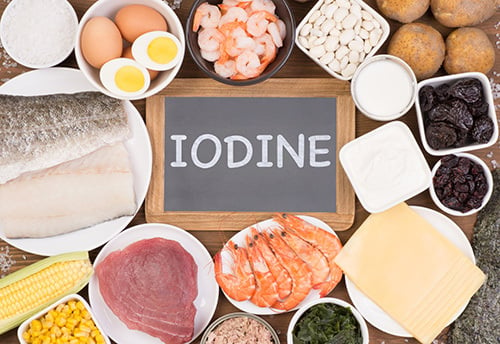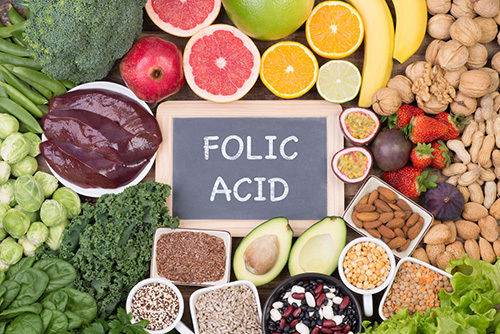What are Micronutrients
July 14, 2022

There are macronutrients and micronutrients in every food. Fats, carbs, and proteins are macronutrients. These are nutrition’s essential components. Every day, your body requires large amounts of each.
Minerals and vitamins. Vitamins and minerals are micronutrients. They are equally crucial to health as macronutrients. There are severalnumber of recommendations for the number of specific nutrients you should consume. Your age and sexuality affect the advice.
You may experience health issues as a result of malnutrition if you don’t get enough of micronutrients. The creation of energy, immune system health, blood coagulation, and other processes all depend on vitamins. In the meanwhile, minerals are crucial for a number of functions, including growth, bone health, fluid balance, and others.
Types of Micronutrients
You should include the following four types of micronutrients in your diet:
vitamins that are water soluble B vitamins and vitamin C are two of the most important water-soluble vitamins. All of these vitamins disintegrate in water. You need to consume more of them every day since your body cannot store them for later use. Any water-soluble vitamins that are not immediately used by your body are eliminated through urine.
They aid your body in obtaining energy. They also help your cells, especially red blood cells, to become stronger.
Vitamin that is fat-soluble: In contrast to water-soluble vitamins, fat is the preferred solvent for fat-soluble vitamins. These include the vitamins A, D, E, and K. Once you have them, you can keep them in your body for future use. They are stored by your body in your liver and fatty tissue. They are crucial for supporting the immune system and eye health. They also aid in the healing of wounds on your body.
Microminerals: These nutrients are necessary. Calcium, magnesium, sodium, and potassium are some of them. They are essential for the well-being of bones and muscles. They assist in regulating your blood pressure as well.
Trace minerals Iron, manganese, copper, zinc, selenium, and other minerals are also necessary. Trace minerals are essential for proper functioning of the nervous system and muscles and repair cell damage, thethe adequate functioning of the nervous system and muscles, and repair cell damage, trace minerals are essential.
Micronutrient Intake Through Food
Different kinds of meals have all the nutrients you require. Most expert concurs that consuming other meals is the most acceptable strategy to obtain them. All of the following foods – fruits, vegetables, meats, and dairy-contain certain micronutrients:
-
- Trace mineral-rich foods include oysters, spinach, cashew nuts, and legumes like peanuts.

-
- Citrus fruits, bell peppers, whole grains, eggs, dark leafy greens, seafood, and lean meats are foods that include water-soluble vitamins.

-
- Leafy greens, soybeans, almonds, sweet potatoes, and milk are foods that contain fat-soluble vitamins.

-
- Black beans, lentilsand lentils, bananas, seafood, dairy products, and other foods contain microminerals. Numerous prepared meals, such as cereals and baked products, have been nutrient-fortified. To find out what is in the product, look at the nutrition label on the packaging of the food you buy.

6 Essential Micronutrients
The following lists the functions of six key micronutrients.
-
- Iron
The development of the nervous system and the brain depends on iron. The effects of iron deficiency can be especially harmful to growing children and pregnant women.
Low haemoglobin concentration, or anaemia, is mostly brought on by iron deficiency. Globally, anaemia affects 30% of pregnant mothers and 40% of children under the age of five. Pregnancy-related anaemia raises the risk of both low birth weight and mortality for the mother. Each year, between 2.5 million and 3.4 million women and newborns die worldwide.
When it comes to iron, babies who are given only breast milk, exclusively formula, or a combination of breast milk and formula, have various demands.

-
- Vitamin A
The immune system and healthy vision are supported by vitamin A. Children who are vitamin A deficient are more likely to go blind or eventually die from illnesses like measles and diarrhea.
An estimated 190 million preschoolers worldwide are thought to be vitamin A deficient.
When vitamin A deficiency is a public health problem, giving vitamin A supplements to kids aged 6 to 59 months is a very effective way to lower fatalities from all causes.

Also Read: Symptoms Of Vitamin D Deficiency
-
- Vitamin D
By facilitating the body’s absorption of calcium, vitamin D strengthens bones. This aids in preventing osteoporosis in older people. Rickets in children and osteomalacia in adults are two bone illnesses that are caused on by vitamin D deficiency. Immune system defenses against germs and viruses are strengthened by vitamin D. The health of your muscles and nerves depends on vitamin D. Vitamin D is produced by the body from sunshine, although the amount varies depending on the geographical location, skin tone, air pollution, and other variables. Limiting sun exposure is also necessary to reduce the risk of developing skin cancer. All children require vitamin D starting soon after birth.

-
- Iodine
Iodine is necessary for a baby’s healthy growth and cognitive development during pregnancy and infancy. An estimated 1.8 billion individuals worldwide do not consume enough iodine.
The majority of foods and beverages have little iodine content.
Iodine fortification of salt is an effective intervention because 86 per cent of households use it globally. People can maintain a sufficient iodine intake even if they consume less salt by adjusting the quantity of iodine added to salt.
Pregnant or nursing women are advised by the American Thyroid Association and the American Academy of Pediatrics to take a supplement daily that contains 150 micrograms of iodine. The American Thyroid Association advises expecting women to start taking a daily iodine supplement at least three months before conception.

-
- Folate
Everyone requires folate (vitamin B9) to create new cells every day. Early in fetal development, folate is crucial for the proper growth of the brain and spine. Another type of vitamin B9 is folic acid.
Prior to conception, ensuring appropriate folate levels in women can help prevent neural tube disorders such as spina bifida and anencephaly.
The frequency of neural tube abnormalities and newborn mortality can be decreased by giving folic acid supplements to women aged 15 to 49 and enriching foods like wheat flour with the vitamin.

Also Read: What Is The Right Age For Pregnancy?
-
- Zinc
Zinc strengthens the immune system and increases resistance to infectious disorders such as pneumonia, malaria, and diarrhea. Additionally, zinc is necessary for a healthy pregnancy.
Due to inadequate dietary intake, 17.3% of the world’s population is at risk for zinc deficiency; in certain areas, the risk might reach 30%.
Taking zinc supplements lowers the risk of preterm delivery, lowers the prevalence of childhood respiratory illnesses and diarrhea, lowers overall mortality rates, and boosts newborn and young child development and weight gain. From 6 months onwards, it is ideal to start feeding infants food that contains zinc.








